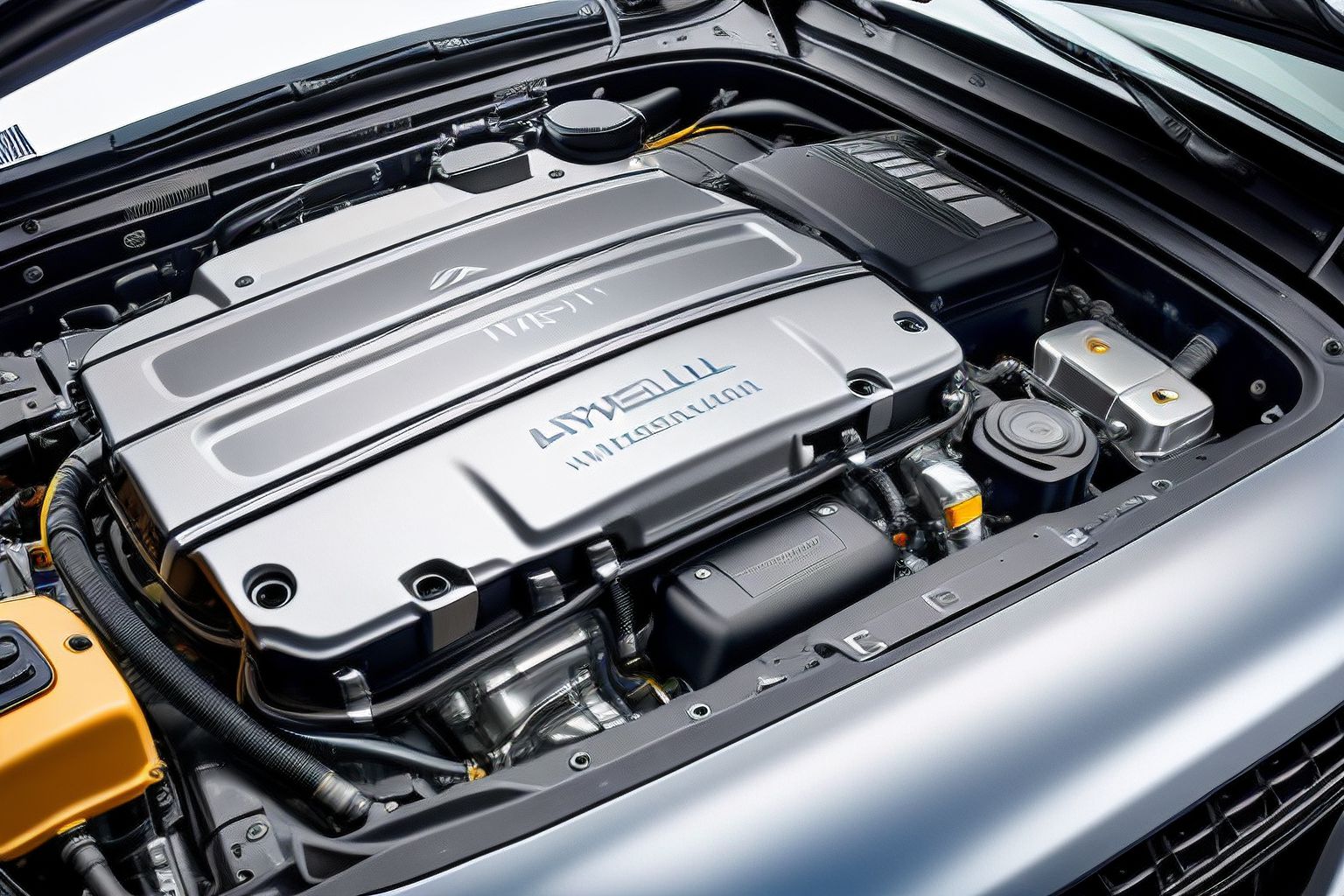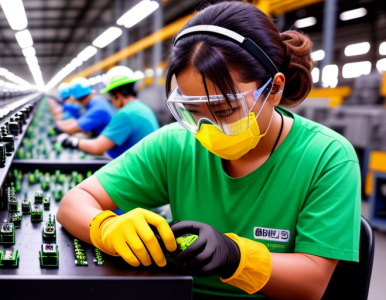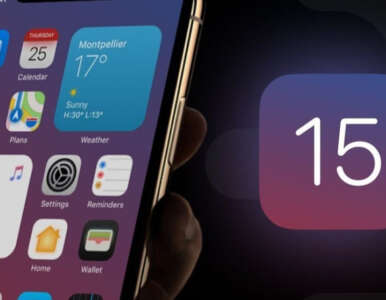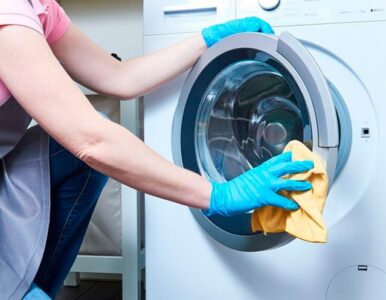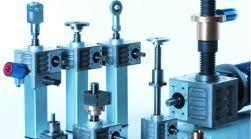Hyundai vehicles are known for their reliability and performance, but like any other car, they can experience problems over time. In this article, we will explore some common problems faced by Hyundai vehicles and provide proactive maintenance and care strategies to prevent these issues. By following these strategies, you can ensure that your Hyundai runs smoothly and avoid costly repairs.
One of the most common car problems faced by Hyundai vehicles is engine issues. Regular maintenance, such as oil changes and filter replacements, can help prevent engine problems. Additionally, keeping an eye on the engine temperature and addressing any warning signs promptly can save you from major engine repairs.
Another common problem is electrical system failures. These can be caused by issues with the battery, alternator, or wiring. Regular battery maintenance, such as cleaning the terminals and checking the voltage, can help extend its lifespan and prevent electrical system failures. Inspecting the alternator and wiring regularly can also help identify and prevent potential problems.
The fuel system is another area that can cause problems in Hyundai vehicles. Regular fuel filter replacement and fuel system maintenance can help prevent issues such as clogged injectors or fuel pump failure. By keeping the fuel system clean and well-maintained, you can ensure optimal performance and avoid costly repairs.
Transmission troubles can also occur in Hyundai cars. Regular fluid checks and changes are crucial to prevent transmission issues. Additionally, adjusting your driving habits, such as avoiding sudden accelerations or excessive towing, can help prolong the life of your transmission.
In conclusion, by being proactive in the maintenance and care of your Hyundai vehicle, you can prevent common Hyundai problems and ensure its longevity. Regular maintenance, fluid checks, and addressing warning signs promptly are key to avoiding costly repairs. By following these strategies, you can enjoy a smooth and trouble-free driving experience with your Hyundai.
Engine Issues
Engines are the heart of any vehicle, and Hyundai cars are no exception. However, like any mechanical component, engines can encounter problems over time. It is crucial to be aware of these common engine issues and take proactive measures to prevent them.
Regular maintenance and proper care are key to keeping your Hyundai engine running smoothly. Here are some common engine problems in Hyundai cars and how you can prevent them:
- Overheating: One of the most common engine issues is overheating. This can be caused by a malfunctioning cooling system or low coolant levels. Regularly check the coolant levels and ensure that the cooling system is functioning properly. If you notice any signs of overheating, such as steam coming from the engine or the temperature gauge rising, address the issue immediately.
- Oil Leaks: Oil leaks can lead to engine damage if left unattended. Regularly check for any signs of oil leaks, such as oil spots on the ground or a burning smell. If you notice a leak, have it repaired as soon as possible to prevent further damage.
- Dirty Air Filters: A dirty air filter can restrict airflow to the engine, affecting its performance and fuel efficiency. Regularly inspect and replace the air filter to ensure optimal engine performance.
- Timing Belt Failure: The timing belt is a crucial component that synchronizes the engine’s valves and pistons. If the timing belt fails, it can cause severe engine damage. Follow the manufacturer’s recommended replacement interval for the timing belt to prevent any issues.
By staying proactive and addressing these engine issues through regular maintenance and proper care, you can ensure the longevity and optimal performance of your Hyundai car’s engine.
Electrical System Failures
Electrical system failures can be a major headache for Hyundai vehicle owners. These issues can lead to various problems, from malfunctioning lights and accessories to complete electrical system shutdowns. However, with proactive maintenance and care strategies, you can avoid these common electrical system failures and ensure the smooth operation of your Hyundai.
One of the key areas to focus on is battery maintenance. The battery is the heart of the electrical system, and proper care can extend its lifespan and prevent failures. Regularly check the battery’s terminals for corrosion and clean them if necessary. Also, ensure that the battery is securely fastened in its tray to prevent any vibrations that could damage it.
Another common cause of electrical system failures is alternator problems. The alternator is responsible for charging the battery and powering the electrical components of the vehicle. Regular inspections and maintenance can help identify any signs of alternator issues, such as dimming lights or a weak battery. If any problems are detected, it’s important to address them promptly to prevent further damage.
Wiring issues can also contribute to electrical system failures. Over time, the wiring in your Hyundai can become damaged or corroded, leading to poor electrical connections and system malfunctions. Regularly inspect the wiring harnesses and connectors for any signs of wear or damage. If any issues are found, it’s best to have them repaired or replaced by a qualified technician to ensure proper functioning of the electrical system.
By following these proactive maintenance and care strategies, you can avoid the most common electrical system failures in your Hyundai. Regular battery maintenance, inspections for alternator problems, and addressing wiring issues can go a long way in ensuring the reliability and performance of your vehicle’s electrical system. Don’t let electrical failures surprise you – take proactive steps to keep your Hyundai running smoothly.
Battery Maintenance
Proper battery maintenance is crucial for Hyundai cars to ensure optimal performance and prevent electrical system failures. By following a few simple steps, you can extend the lifespan of your battery and avoid potential issues.
Firstly, it is important to regularly inspect your battery for any signs of corrosion or damage. Check for any loose connections and clean the battery terminals if necessary. This will help maintain a strong and reliable electrical connection.
Secondly, make sure to keep your battery charged. If your car is not driven frequently, consider using a battery maintainer or trickle charger to keep the battery charged at all times. This will prevent the battery from draining and prolong its lifespan.
Additionally, extreme temperatures can affect battery performance. In hot weather, ensure that your battery is properly insulated and protected from excessive heat. In cold weather, consider using a battery blanket or heater to keep the battery warm and prevent freezing.
Lastly, regular battery testing is essential to identify any potential issues before they become major problems. Consult your vehicle’s manual or visit a professional mechanic to perform battery tests and ensure that it is functioning properly.
By following these battery maintenance tips, you can extend the lifespan of your Hyundai’s battery and prevent electrical system failures. Remember, a well-maintained battery is key to a reliable and efficient vehicle.
Alternator Problems
Alternator problems can be a common issue in Hyundai vehicles, but with regular inspections and maintenance, they can be easily prevented. It is important to be aware of the signs that indicate a potential alternator problem, as catching it early can save you from more serious issues down the road.
One of the most common signs of alternator problems is a dead or weak battery. If you notice that your battery is constantly dying or struggling to hold a charge, it could be a sign that your alternator is not functioning properly. Another sign to watch out for is dim or flickering headlights. If your headlights seem to be dimmer than usual or if they flicker while driving, it could be a result of an alternator problem.
To prevent alternator problems, regular inspections and maintenance are key. Make sure to have your alternator checked during routine maintenance visits to ensure that it is in good working condition. Additionally, keeping your battery clean and free from corrosion can also help prevent alternator issues. If you notice any signs of alternator problems, it is important to address them promptly to avoid further damage to your vehicle’s electrical system.
Wiring Issues
Wiring issues in Hyundai cars can lead to electrical system failures and impact the overall performance of the vehicle. It is important to be able to identify and prevent these issues to ensure optimal functioning of the car.
One way to identify wiring issues is through regular inspections. Check for any frayed or damaged wires, loose connections, or signs of corrosion. If you notice any of these problems, it is crucial to address them promptly to prevent further damage to the electrical system.
Preventing wiring issues can be done through proper care and maintenance. Avoid exposing the wires to extreme temperatures or harsh conditions, as this can cause them to deteriorate. Additionally, be careful when installing aftermarket accessories, as improper installation can lead to wiring problems.
Regularly checking and maintaining the electrical system can also help prevent wiring issues. Ensure that all connections are secure and clean, and that any damaged wires are repaired or replaced. It is also a good idea to follow the manufacturer’s recommended maintenance schedule for the electrical system.
By being proactive and attentive to wiring issues, you can avoid electrical system failures in your Hyundai car and enjoy a smooth and reliable driving experience.
Fuel System Problems
Fuel system problems can be a major headache for Hyundai vehicle owners. These issues can lead to poor fuel efficiency, engine performance problems, and even breakdowns. It is important to be aware of common fuel system problems and take preventive measures to avoid them.
One common fuel system problem is a clogged fuel filter. Over time, the fuel filter can become dirty and clogged with debris, preventing proper fuel flow to the engine. This can result in reduced engine performance and even engine stalling. Regular fuel filter replacement is essential to prevent this issue. Consult your vehicle’s manual or a professional mechanic to determine the recommended replacement interval for your Hyundai model.
In addition to fuel filter replacement, regular fuel system maintenance is crucial for optimal performance. This includes cleaning the fuel injectors, inspecting and cleaning the fuel lines, and checking for any leaks or damage. By keeping the fuel system clean and well-maintained, you can prevent fuel system problems and ensure that your Hyundai vehicle runs smoothly and efficiently.
It is also important to use high-quality fuel and avoid filling up with low-quality or contaminated gasoline. Poor fuel quality can lead to fuel system issues, such as clogged injectors or fuel pump damage. Be sure to choose reputable gas stations and consider using fuel additives to keep your fuel system clean and protected.
By being proactive and taking preventive measures, such as fuel filter replacement and regular fuel system maintenance, you can avoid common fuel system problems in your Hyundai vehicle. This will not only save you from costly repairs but also ensure that your vehicle performs at its best.
Transmission Troubles
Transmission troubles can be a major headache for Hyundai car owners, but with the right maintenance and care strategies, these issues can be prevented. By understanding the common transmission problems that Hyundai vehicles may face, you can take proactive steps to keep your transmission running smoothly.
One of the key aspects of preventing transmission troubles is proper maintenance. Regularly checking and changing the transmission fluid is essential to ensure optimal performance. The transmission fluid acts as a lubricant and coolant for the transmission, and over time, it can become contaminated or lose its effectiveness. By following the manufacturer’s recommended maintenance schedule for fluid checks and changes, you can prevent issues such as overheating and premature wear.
In addition to fluid maintenance, your driving habits can also play a role in the health of your transmission. Aggressive driving, such as sudden acceleration and hard braking, can put unnecessary strain on the transmission and increase the risk of problems. By adopting smooth and gentle driving habits, you can reduce the stress on your transmission and prolong its lifespan.
Lastly, regular inspections and maintenance by a qualified technician can help identify any potential issues before they become major problems. They can check for signs of wear and tear, leaks, and other issues that may affect the performance of your transmission. By addressing these problems early on, you can save yourself from costly repairs down the line.
In conclusion, transmission troubles can be avoided through proper maintenance, fluid checks, and driving habits. By taking proactive steps to care for your transmission, you can ensure that your Hyundai vehicle stays on the road and performs at its best.
Fluid Maintenance
Fluid maintenance is a crucial aspect of taking care of your Hyundai vehicle’s transmission. Regular transmission fluid checks and changes play a vital role in preventing transmission troubles and ensuring smooth shifting.
Transmission fluid acts as a lubricant, cooling agent, and hydraulic fluid in your vehicle’s transmission system. Over time, the fluid can become contaminated with debris and lose its effectiveness. This can lead to various transmission issues, such as gear slipping, rough shifting, and even complete transmission failure.
To prevent these problems, it is essential to regularly check the transmission fluid level and quality. You can find the transmission dipstick under the hood of your Hyundai. Make sure the vehicle is on a level surface and the engine is warm before checking the fluid. Wipe the dipstick clean, reinsert it, and then remove it again to get an accurate reading.
If the fluid level is low or the fluid appears dirty or discolored, it’s time for a transmission fluid change. Consult your Hyundai owner’s manual or seek professional assistance to determine the appropriate type of transmission fluid and the recommended interval for fluid changes.
Remember, neglecting transmission fluid maintenance can result in costly repairs and a compromised driving experience. By staying proactive and taking care of your Hyundai’s fluid maintenance needs, you can ensure a smooth and trouble-free transmission for years to come.
Driving Habits
Driving habits play a crucial role in preventing transmission problems in Hyundai cars. By adjusting your driving style, you can avoid potential issues and ensure the longevity of your vehicle’s transmission. Here are some driving habits to keep in mind:
- Avoid sudden and aggressive acceleration: Rapid acceleration puts a strain on the transmission, leading to premature wear and potential damage. Instead, accelerate gradually and smoothly to reduce stress on the transmission.
- Don’t ride the brakes: Continuous braking, especially when going downhill, can overheat the transmission and cause it to wear out faster. Instead, use engine braking by downshifting to a lower gear to slow down the vehicle.
- Allow the engine to warm up: Cold starts put extra stress on the transmission. It’s essential to let the engine warm up for a few minutes before driving, especially during colder weather.
- Avoid excessive towing: Overloading or towing beyond the recommended capacity can strain the transmission, leading to overheating and potential damage. Always adhere to the manufacturer’s guidelines for towing capacity.
- Regularly check and change transmission fluid: Maintaining the proper level and quality of transmission fluid is vital for smooth shifting and overall transmission health. Follow the recommended maintenance schedule for fluid checks and changes.
By adopting these driving habits, you can significantly reduce the risk of transmission problems in your Hyundai car. Remember, a little adjustment in your driving style can go a long way in ensuring the longevity and performance of your vehicle’s transmission.
Frequently Asked Questions
- Q: What are some common engine problems in Hyundai cars?
- Q: How can I prevent electrical system failures in my Hyundai vehicle?
- Q: What signs indicate alternator problems in Hyundai vehicles?
- Q: How can I identify and prevent wiring issues in my Hyundai car?
- Q: What are some common fuel system problems in Hyundai vehicles?
- Q: How can I prevent transmission troubles in my Hyundai car?
- Q: Why is regular transmission fluid check and change important?
- Q: How can driving habits affect the transmission in Hyundai cars?


